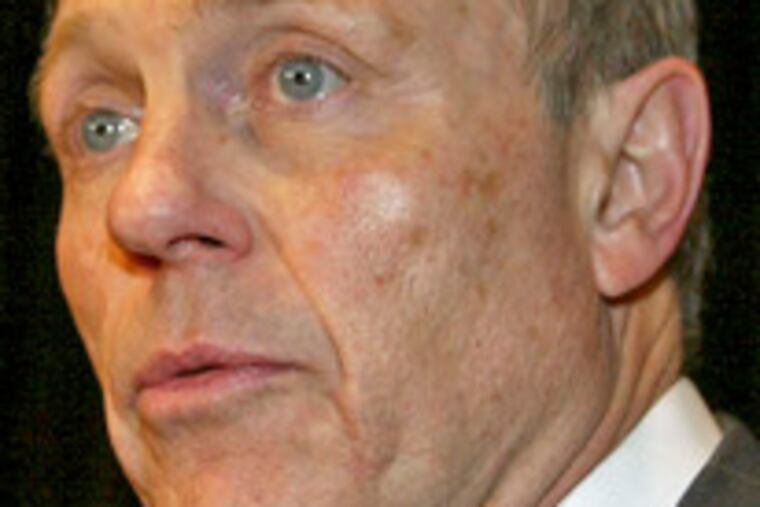Pa. gaming board sues on referendum
Fulfilling a threat, the state Gaming Control Board filed suit yesterday to block a voter referendum May 15 on sharply limiting the locations for slots casinos in Philadelphia.

Fulfilling a threat, the state Gaming Control Board filed suit yesterday to block a voter referendum May 15 on sharply limiting the locations for slots casinos in Philadelphia.
The board said the vote on the ballot question, which would ban casinos within 1,500 feet of houses, places of worship, parks and schools, is an attempt to stop any casino from being built anywhere in Pennsylvania's largest city.
A unanimous City Council voted last week to override Mayor Street's veto of the plan to put the question on the primary election ballot.
The board says that in 2004, it was given sole authority by the legislature to choose the location of casinos in Philadelphia. It has predicted that the question, if passed, would be overturned in court.
The board licensed two casinos along the Delaware River in December.
It said it moved into court yesterday to stop the waste of time the referendum would cause.
Board Chairman Tad Decker said in a statement that Pennsylvania would lose $140 million in tax revenue for every six months that the two slots casinos were delayed.
"This ballot issue is being sold by the Philadelphia City Council to the citizens of Philadelphia as a way to take control of the locations of slots facilities, when in reality it is designed to halt the construction of these facilities along with the resulting jobs, economic development and property-tax relief that will be generated," Decker said.
Anne Neeb, the board's executive director, said the referendum was giving Philadelphians "false hope" that the state's authority to choose casino locations could be overruled by city voters.
"In reality, this attempted action by City Council and anti-casino forces" is illegal and unconstitutional, she said in a statement.
Reaction to the lawsuit from Philadelphians opposed to casinos in Fishtown and South Philadelphia was swift and angry.
Daniel Hunter of Casino-Free Philadelphia, an amalgam of 16 civic associations and other groups, said, "Our right to vote is under attack by an out-of-control board.
"What we have here is the Pennsylvania Gaming Control Board doing the casinos' dirty work. Our position is, we have the right to vote."
City Councilman Frank DiCicco, whose district takes in the sites for both casinos, said the board was trying to stop Philadelphians from even expressing their opinion.
"The gaming board is doing what the state had already done, which is to try to put a gag order on the city of Philadelphia," he said. "What has caused a lot of this anger - not only on the riverfront but throughout the city - is the consistent way in which the state has made decisions for Philadelphia without giving Philadelphia any say in it."
The board expects to license as many as 14 slots casinos around the state.
DiCicco said the board's action falls into a long-term pattern of the state's taking power from the city. He noted that over the years it has taken over the schools and the Parking Authority, and blocked a measure to ban the purchase of assault rifles.
DiCicco said Council's next move is probably to pick a law firm to fight the suit. He said City Solicitor Romulo L. Diaz Jr. should not handle the case because he is on record as saying the referendum cannot pass court muster.
Dan Fee, a spokesman for the planned SugarHouse Casino in Fishtown, noted that the casinos' planners were not parties to the lawsuit.
"Our position," he said, "is that whether legal or not, [the referendum] is a bad idea. It would deny Philadelphia thousands of new jobs and money for our schools and to put police on the street."
To read the gaming board's legal filings, go to http://go.philly.com/gamingappealEndText